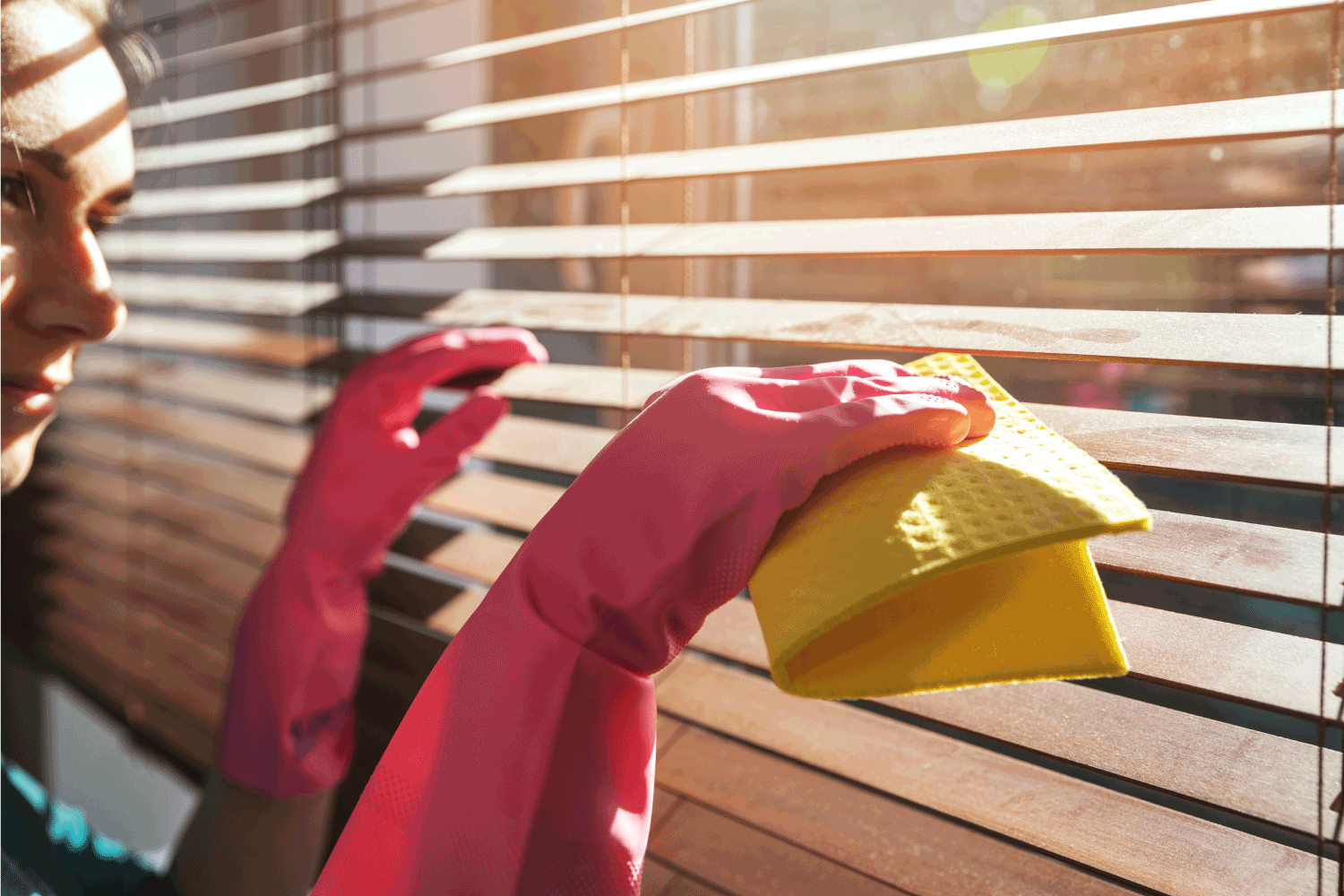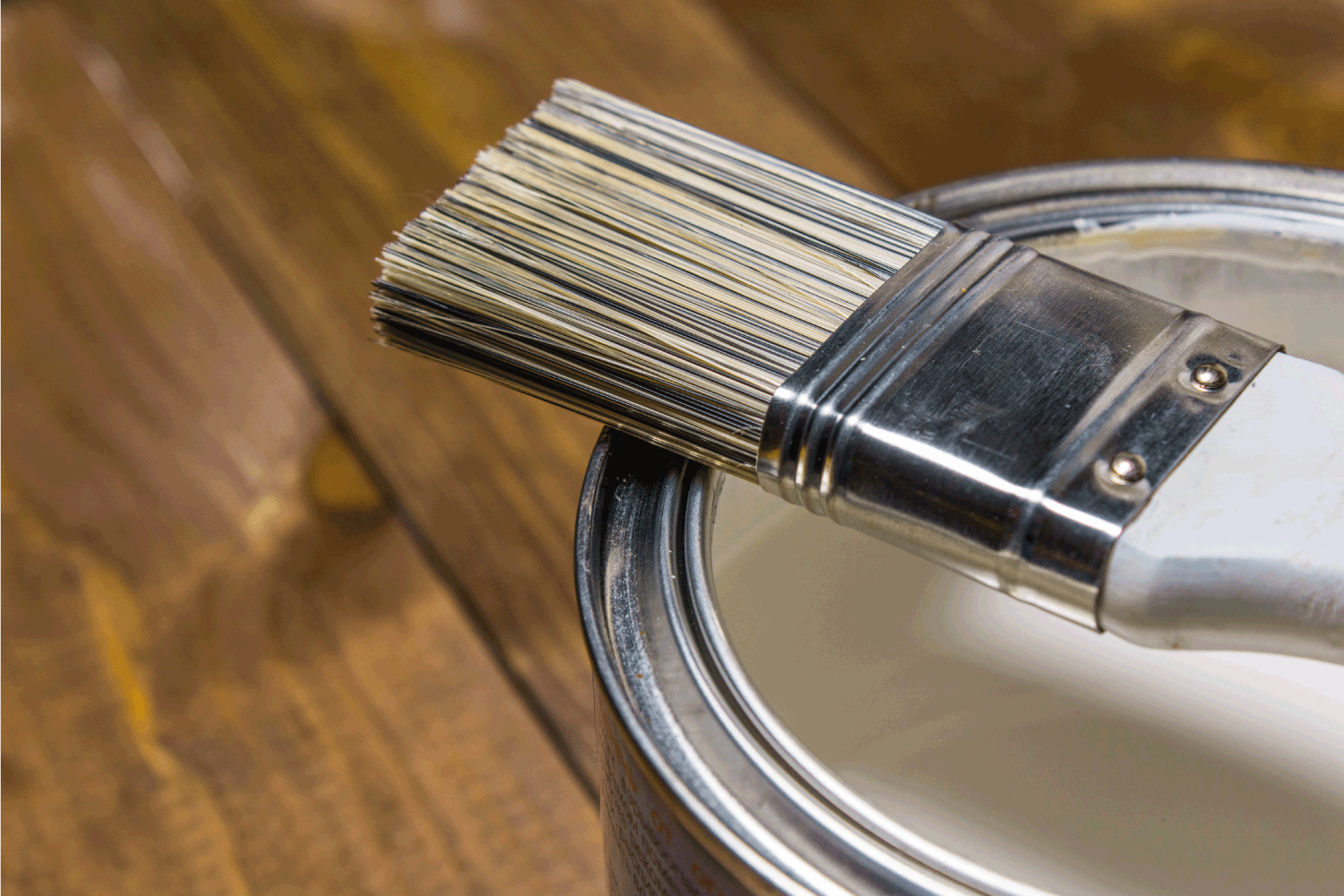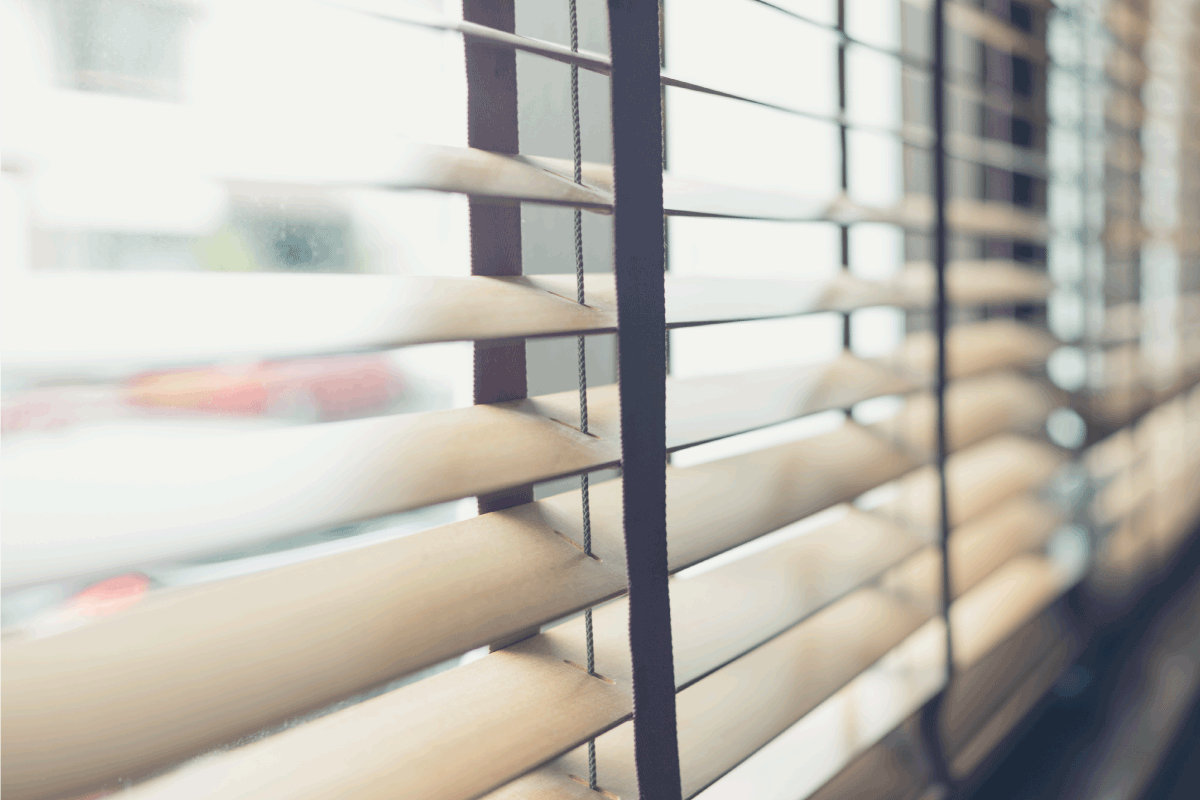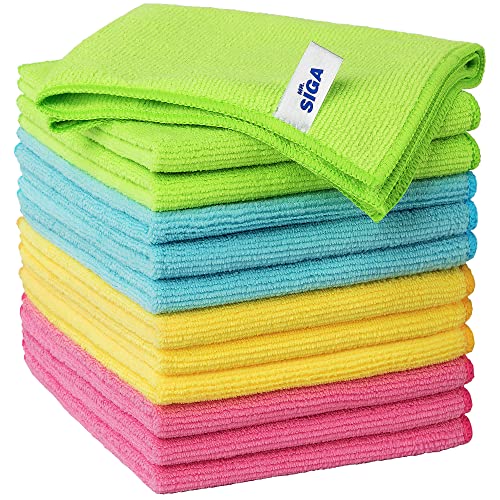Bamboo blinds add an exotic touch to your home. They are versatile as their natural color can blend in with your floor, furniture, or overall décor. But, is the color of your blinds making your home dull? We consulted with experts in the interior design industry and provided the following answer.
You can brighten your home by whitewashing your bamboo blinds by following the steps below:
- Cleaning
- Sanding
- Priming
- Painting
To whitewash your bamboo blinds is easy. Keep reading to know the steps of this process and how to maintain them in good condition. We have given tips on how to budget for this project.

How Do You Whitewash Bamboo Blinds?
Bamboo blinds are affordable, eco-friendly, easy to maintain, and provide privacy. Do you want to change your dark blinds to lighter ones? Or, have you bought some bamboo blinds and want to whitewash them to blend in with your furniture?
The process is simple and the steps to take include:
Clean Your Bamboo
The first thing to do is to bring down your blinds. Unscrew the blinds from the head rail, or unhook them from the supports to release them. Take them outside or to a well-ventilated room.
There are two ways you can clean your blinds. Each method is explained below:
We sometimes add affiliate links and content that was curated and created by our team with the help of advanced ai tools to help showcase the best design styles.

Use Anti-Bacterial Dishwashing Liquid
The materials you need are:
-
- Mild anti-bacterial dishwashing liquid
- Water
- Toothbrush
- Clean cloth
Method:
- Clean The Slats
Look for a drop cloth big enough to fit your blinds and lay it on the floor or ground. Extend the blinds fully, being extra careful since they can move around easily. Ensure they are completely straight.
With a toothbrush, brush each slat, removing dust, mold, and bugs. Apply more pressure on your toothbrush to the areas that are difficult to clean.
- Dip Into Soapy Water
Pour warm water into a bath up to 3 or 4 inches deep, and 2 cups of mild anti-bacterial or lemon dishwashing liquid.
Mix well, and submerge the blinds into the soapy water. Let them soak for five minutes. Lift and dip into the water several times.
This removes any dust still stuck to the bamboo. Go over stubborn mold stains by scrubbing with the toothbrush.
- Rinse Blinds
Drain out the soapy water and fill the tub with warm clean water, and then dip and lift the blinds several times in the water.
Drain out this water and pour in clean, warm water, and rinse again. Repeat procedure until water is clear.
You can also use a shower head to rinse your blinds as you hold them up. You may need to ask someone to hold the blinds for you.
- Dry Your Blinds
With a clean dry towel, blot out as much water as you can, and then take them outside to dry. If the weather is unfavorable or you do not have a yard, then take to a well-ventilated room.
Use the drop cloth, old clothes, towels, or something water can drip into and place them on the floor. Lay your blinds on them, and leave them to dry.
Use Natural Cleaning Agents
Materials needed:
-
- Vinegar
- Baking soda
- 3% hydrogen peroxide
- Clean cloth
- Make a paste
View this 3% hydrogen peroxide cleaning agent on Amazon.
Mix one tablespoon of baking soda, white vinegar, enough water, and 3% hydrogen peroxide like the one above to make a paste. Dampen a clean cloth with this mixture. Wear rubber or latex gloves, if your skin is sensitive.
- Clean Bamboo With Dampened Cloth
With your dampened cloth, clean the bamboo, one slat at a time, and at the front and back.
Scrub thoroughly the areas that have mold stains with a toothbrush dipped in a treatment of your choice. Use your toothbrush to scrape off any dried paste.

Sand The Bamboo
View this sandpaper set on Amazon.
Use fine-grain sandpaper like the one above to sand the bamboo lightly. This removes the top waxy layer that is in all bamboo or the paint currently on it.
If you do not sand out the entire layer of wax or paint, you will have a mottled look. The paint will stick well in some parts and not in others. To sand evenly, apply slight pressure using circular motions to remove all the waxy layer and paint.
Bamboo can break if you use an electric sander, so avoid it altogether.
Brush And Wipe Off Sandpaper Dust
Use a brush with soft bristles to remove the dust left over after sanding. Don’t use an abrasive brush or one with stiff bristles, as it will scratch your bamboo and leave unsightly marks.
This is a microfiber cloth that you can find on Amazon.
After brushing, dampen a microfiber cloth with warm water and wipe the blinds. This cloth has split fibers that easily grab dust and particles. With it, you will be able to remove any remaining dust, then leave them out to dry.

Prime Your Bamboo Blinds
Since paint does not adhere well to bamboo, it would be a good idea to first prime it. Choose the type of primer you want to use; there are oil-based and water-based primers. You may have to seek the service of a professional to decide on this.
Primer is a chemical, so you may require wearing protective gear; eyeglasses, and a face mask. You could either use a soft brush to apply primer or use a spray-on primer.
If you are using the latter, shake the can of primer and hold it 6 inches away from the blinds. Don’t forget to test spray on something like a drop cloth or cardboard to ensure the can sprays evenly.
Apply a thin coat, starting from the top of your blinds, moving across from one end to the other. Don’t spray on one spot for too long. Do this until you complete one blind, and continue to the others until you finish priming all of them.
Let the primer dry for 30 minutes to one hour. Tap the blinds, and if the primer sticks to your hands, let it continue drying. If it does not stick, you are ready to paint it.

Paint Your Bamboo
To whitewash, you should have picked white paint. Ideally, you can use any type of white paint. It all depends on the look you want to achieve.
View this paint sprayer on Amazon.
For example, there are chalk paints, mineral paints, latex paints, etc. You can use canned paint, or use a sprayer. Hold your can of paint or sprayer like the one above and spray 6 inches away from the blinds.
Starting from the top of the blind, move across from one end to the other, until you finish painting the entire blind.
Allow 30 minutes to dry, though this will depend on the type of paint you use. Apply 2 to 3 coats, ensuring the bamboo has thoroughly dried in between the coats.
How To Maintain Your Whitewashed Blinds
You have finished whitewashing your blinds, and you want to keep them in good condition. The following are some tips to help you with this:
Clean Regularly
Dirt shows up quickly on the color white. Furthermore, bamboo is susceptible to mold. Clean your blinds regularly and occasionally spray a fungicide to control mildew.
Adequate Ventilation
Improve the ventilation in the rooms that have bamboo blinds to prevent dampness to reduce the growth of mold.
Install a de-humidifier, especially if you live in humid areas or during the hot and humid seasons.
Cost Of Whitewashing Your Blinds
The cost of whitewashing your blinds depends on several factors. For starters, it will be cheaper, if you paint them yourself instead of hiring a professional.
However, it may be worth hiring a professional because they may do a much better job than you would. This can happen if you do not have the required painting skills.
Secondly, the paint and primer you use will determine how much you will spend on it.
Thirdly, if you are buying the equipment for the first time such as a sprayer, paint brushes, or drop cloth, it will cost you more. If you have any of this equipment beforehand, it will be cheaper.
Overall, write down all the materials and tools you need, and come up with an affordable budget.

Final Words
You can whitewash your blinds to achieve a new look in your home, match them with your furniture, or maybe you just bought them and want to change their color.
Whatever your reason, whitewashing is easy, and by following the steps in this post, you can make your home more appealing.
Thank you for reading this post. We welcome you to read our previous ones related to this topic by clicking the links below:




